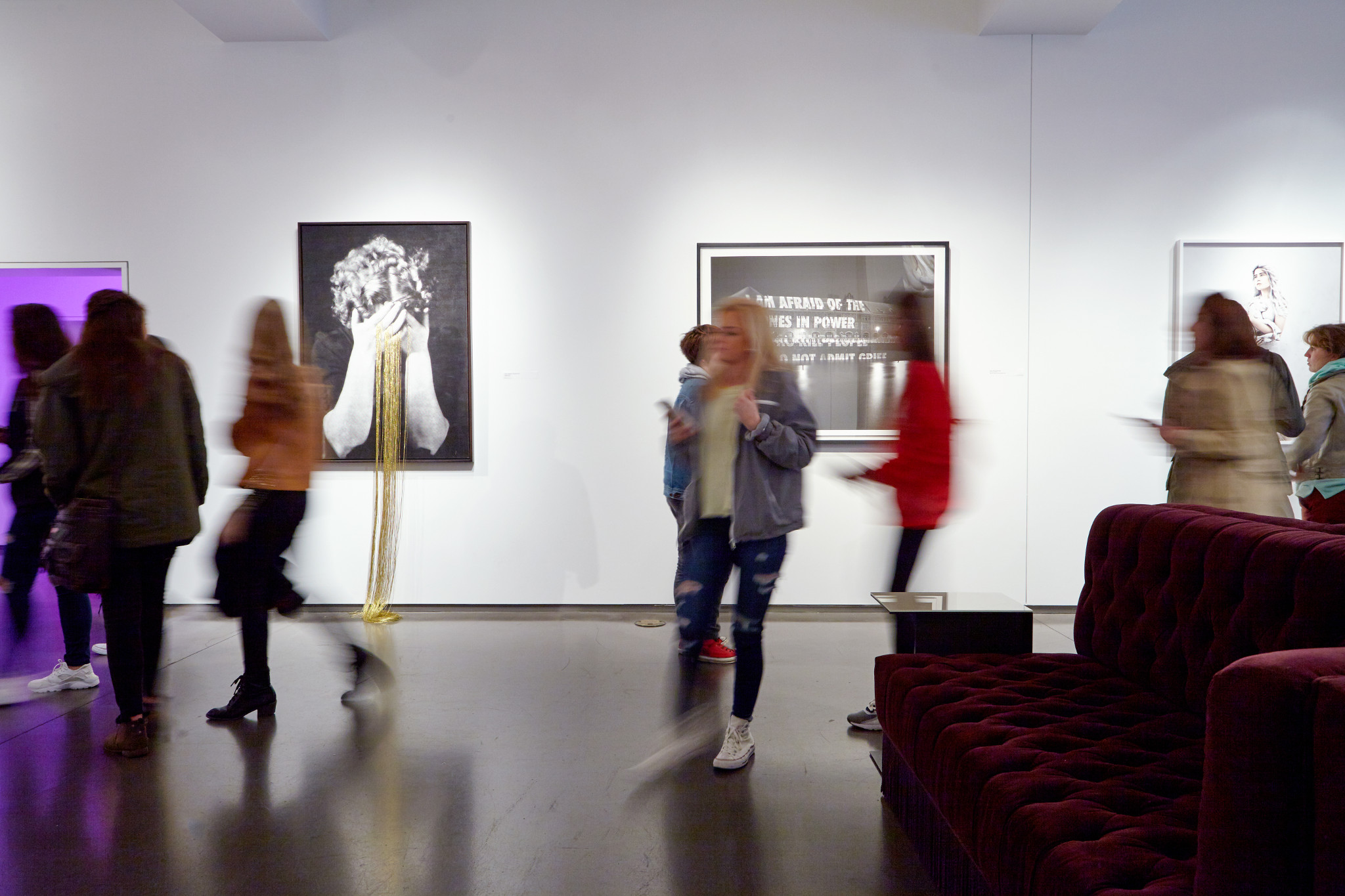
Staying true to their goal of fostering a real connection through community, curation, and experience, 21c Museum Hotel strives to bring people together around art in a way that is inclusive and relevant. These core claims brought our agency to dive headfirst into the surrounding community by addressing relevant issues and topics, and even ones that may even spark controversial narratives.
When approached by the team at 21c to create a platform that could evoke meaningful discussion, PB&J orchestrated one where evolving topics could find a place to sound off. We worked to create a place where free-thinkers and creative speakers utilized their unique dispositions and were able to fuse their voices within a supportive atmosphere. The goal was to herald open discourse as the main catalyst, and that’s where the essence of (c)horus truly emerged.
(c)horus was inspired by the mission of 21c, that believes in the power of art in terms of how it can anchor and energize a community, making it an agent for positive change. The intention behind its creation was simple: to host discussions from a diverse but balancing “chorus” of voices. Each facet of (c)horus was created to bring a new issue to light, ranging from music, branding, fashion, and even Cincinnati’s local food scene.
21c tested the first round of (c)horus in May in the hotel alongside sound and music industry professionals, taking a stab at the topic of Cincinnati’s music scene and the opportunities that could follow. The evening saw appearances from their creative multifaceted panel, which included Cincinnati Music Accelerator Founder, Producer Kick Lee, Co-Founder of Bunbury Music Festival and MidPoint Music Festival, Bill Donabedian, Co-Owner of MOTR Pub and the Woodward Theater, Dan McCabe, Founder of Gwyene Sound, Dan Carruthers and Cincinnati CityBeat’s Event Marketing Coordinator, Chanell Karr. The panel was fortunate enough to have Cincinnati Opera’s Artistic Director Evans Mirageas moderate the discussion throughout the evening.
Each panelist was given a 3x5 inch notecard to jot down their opinions and questions. The panel discussion format breathed new life into the future of how discourse can involve not only the panelists’ perspective, but the audience’s as well. After their introductions, they were directed to read the three topics or issues from their cards to drive conversation and get to the heart of why everyone had gathered there that evening. (c)horus aimed to break the status-quo of mundane forums and panels with an experimental setup that stayed true to 21c’s core values.
PB&J sat down with the Director of Museum Operations at 21c, Eli Meiners, to construct the following dialogue for the concept of (c)horus: Volume One. The team looks forward to further series renditions.
How does (c)horus coincide with 21c’s core values?
21c is nothing if not aspirational. Our properties and our roots are in what most would call “flyover states” but, we hold ourselves to the highest standards of our profession. We like to say we are globally connected yet rooted in our local communities. One can say the same for the music, design, and culinary scene in our city. However, these industries are not homogeneous. Nor are the individuals that drive them, but are all passionate about setting a high standard. At 21c we care about the success of our cities’ creative community and that requires participation. Our founder, Steve Wilson, once said, “Art is an easy place to start tough conversations.” (c)horus is another way to continue that conversation.
This type of open dialogue is a bit of a departure from “art panel” formats. What did you find most interesting about this format and why?
My favorite parts of the evening and the format came as a result of Evans’s guidance. His format ensured that the audience’s voice shared the stage with the panelists. He held panelists and audience members accountable for their statements by pulling specifics out of those who made generalized statements.
Diving into Cincinnati’s music specific issues, what’s your take on the shifting value of live music within our cultural scene?
Our cultural scene is a living organism that will continue to morph, expand, contract, fail, and succeed in cycles. My very subjective take is that we are in an in between place relative to the value of music. Its value is known and being co opted into a TGIFridays music experience. While these situations are getting the headlines there are entrepreneurial endeavors that are percolating and they will eventually rise to the surface. When they do they need to be fostered both by citizens and government rather bought and turned into an experience you could have in any city USA.
How important is a thriving music scene for Cincinnati?
It is critical. I may be biased but, it seems to me that the arts are as crucial to the success of a city as any social service.
What could an event like this mean for 21c’s place in the community and communities surrounding all 21c locations?
(c)horus is a way for us to both act as a conduit for those in our communities and affect the outcomes in those communities. If it finds success I think we will be able to look back at these conversations as a spark that lead to some exciting changes.